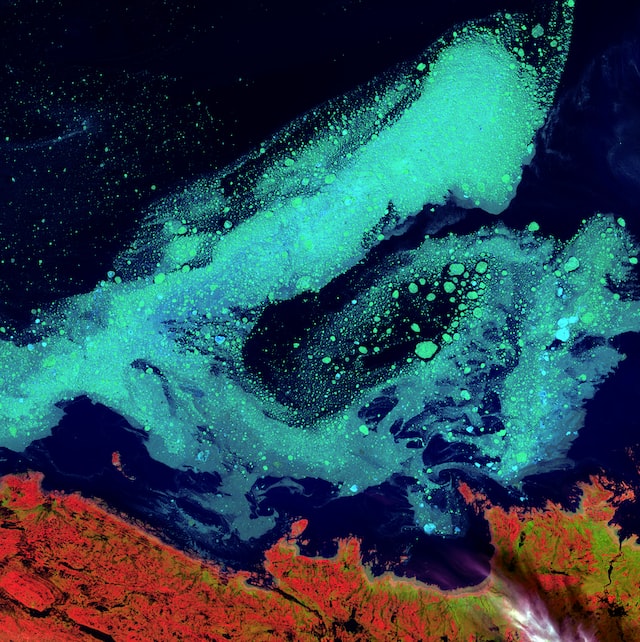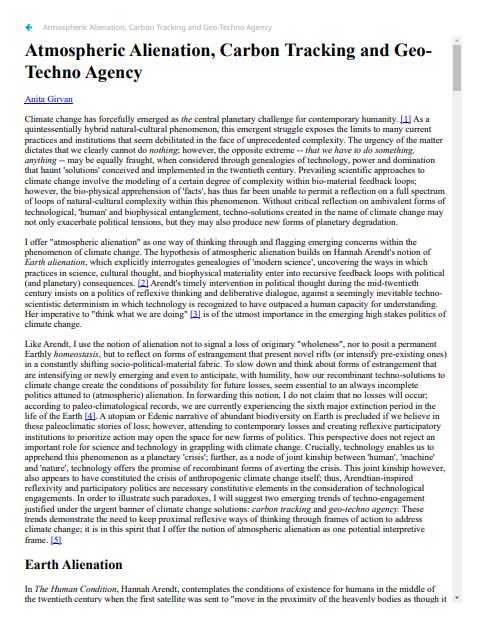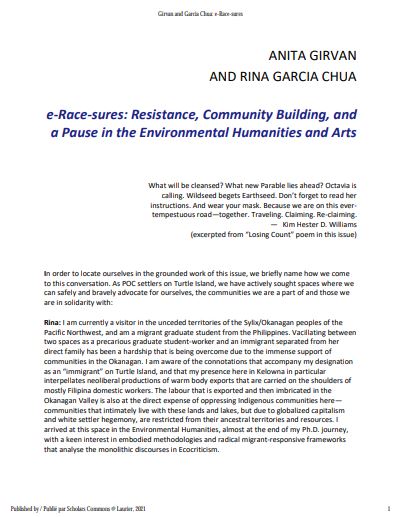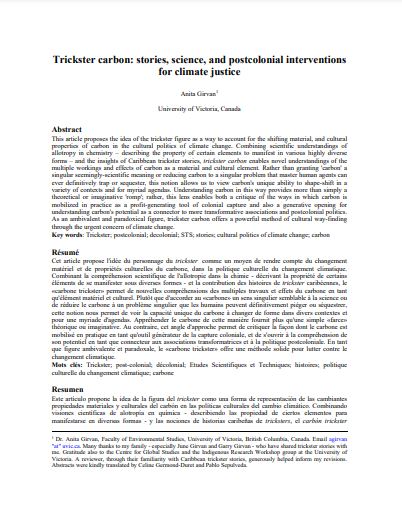
University of British Columbia Okanagan | Faculty of Creative and Critical Studies
| Research Areas: Cultural Studies; Environmental Humanities; Political Ecology and Environmental Justice; Black and Indigenous Feminist Ecological Thought; Stories, Metaphor; Critical Canadian Studies |
Dr. Anita Girvan is an Assistant Professor of English and Cultural Studies at the University of British Columbia Okanagan. Her book, Carbon Footprints as Cultural-Ecological Metaphors (2018), traces how metaphor culturally and materially constitutes climate change and other ecological issues as potential sites of contestation and reclamation with regard to socio-ecological matters. Girvan has published in the Journal of Canadian Studies, Social Justice Studies, Feminist Studies, Journal of Political Ecology, CTheory, and Rhizomes: Cultural Studies in Emerging Knowledge. Girvan’s work on IBPOC cultural and ecological presencing in Canada has appeared in her co-guest-edited 2021 journal issue “E-Race-sures” in The Goose: A Journal of Arts, Environment and Culture in Canada. Girvan received SSHRC IDG funding (2021-23) for the project “E-Race-sures, Renovictions and Reclamations,” which explores the connection between white-colonial dispossessions and songs and photos of Canadian imaginaries. In “Racialized Ecologies in and Beyond Settler-Colonial Canada: Documentary, Speculative and Poetic Texts and Contexts,” Girvan extends this interest through a racial capitalism lens, Black railway porter memoirs, Wayde Compton’s speculative-documentary histories, and speculative solidarities.
Selected Publications

Girvan, Anita. “Atmospheric Alienation, Carbon Tracking & Geo-Techno Agency” CTheory Journal, Code Drift: Essays in Critical Digital Studies, May 13 2010.
Girvan proposes the concept of “atmospheric alienation” to explore emerging concerns within climate change, building on Hannah Arendt’s notion of Earth alienation. Through analysis of carbon tracking and geo-techno agency, Girvan emphasizes the need for reflexive thinking and participatory politics to address the socio-political-material consequences of climate change, while also recognizing the role of technology in apprehending and potentially averting the crisis.

Girvan, Anita and Chua-Garcia, Rina. (2021) “E-race-sures.” Editorial Introduction to The Goose, A Journal of Arts, Environment and Culture in Canada, vol. 19, no. 1, 2021.
The special issue highlights the de-valuing of IBPOC communities and their ways of knowing about larger-than-human relations has led to e-Race-sures in creative artistic fields and educational institutions of Environmental Humanities. The issue’s discussions of e-Race-sures are also simultaneously a project of actively erasing the marks of colonial and racial domination to make room for presence.

Girvan, Anita. “Trickster Carbon: Stories, Science, and Postcolonial Interventions for Climate Justice.” Journal of Political Ecology, vol. 24, 2017, pp. 1038-1054.
Girvan proposes interpreting carbon in light of Carribean trickster stories as a way to understand the shifting material and cultural properties of carbon in the cultural politics of climate change, offering a critique of carbon’s use as a profit-generating tool of colonial capture and a generative opening for understanding carbon’s potential for transformative associations and postcolonial politics.
